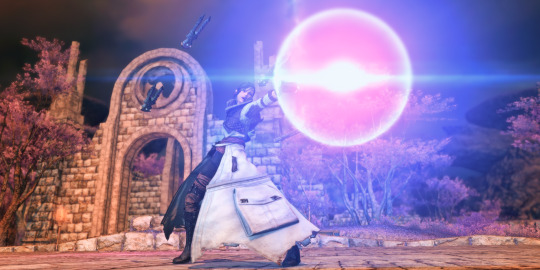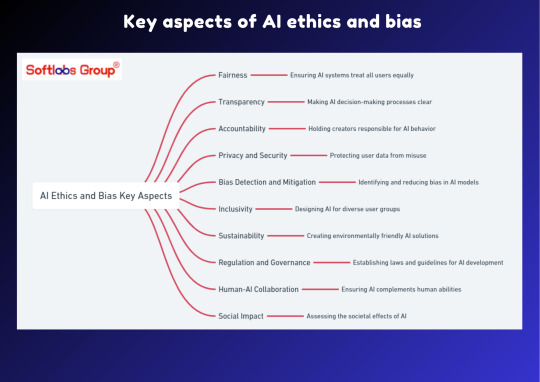#Bias mitigation
Explore tagged Tumblr posts
Text
Empowering Educators: Harnessing AI in Education with ChatGPT
🔍 Curious about the impact of AI in education? Discover how ChatGPT can revolutionise your teaching practices! 📚✨ Learn practical steps to enhance student engagement, ensure data privacy, and mitigate biases. Empower your classroom with cutting-edge tec
Embracing Technological Advancements in Education In the rapidly evolving landscape of education, staying abreast of technological advancements is essential for fostering dynamic and engaging learning environments. Artificial Intelligence (AI) stands at the forefront of these innovations, offering powerful tools that can transform educational practices. Among these tools, ChatGPT, an AI…
#AI in education#bias mitigation#ChatGPT#cybersecurity for educators#data privacy#educational technology#exam preparation#high school education#lesson planning#NCEA Classical Studies#personalised learning#student engagement#teaching tools
0 notes
Text
Mastering the Art of Crafting AI Image Prompts: A Comprehensive Guide
In the dynamic landscape of artificial intelligence (AI), the fusion of technology and creativity has birthed a remarkable phenomenon: AI image prompts. These prompts serve as catalysts for AI systems to generate visual content autonomously, igniting a revolution in creative AI applications. Defining AI Image Prompts:AI image prompts are carefully crafted instructions or stimuli designed to…

View On WordPress
#ai art#ai creativity#ai generator#ai image#AI image prompts#art inspiration#Bias mitigation#Collaborative creativity#Creative AI#Creative constraints#creative technology#Deep Learning#Digital Creativity#Diversity in AI#Ethical AI#Image synthesis#Machine Learning#neural networks#Responsible innovation
1 note
·
View note
Text
#Adversarial testing#AI#Artificial Intelligence#Auditing#Bias detection#Bias mitigation#Black box algorithms#Collaboration#Contextual biases#Data bias#Data collection#Discriminatory outcomes#Diverse and representative data#Diversity in development teams#Education#Equity#Ethical guidelines#Explainability#Fair AI systems#Fairness-aware learning#Feedback loops#Gender bias#Inclusivity#Justice#Legal implications#Machine Learning#Monitoring#Privacy and security#Public awareness#Racial bias
0 notes
Text

✦ S A G E
Power surges. Her nouliths hum, the pendulums whirling about her in a cloud, thrumming with aether. Healing eluded her for so long, but the techniques of a sage made those muddy waters clear. She can stand in the epicenter of the battlefield and shield her companions, protecting them from their foes. She has no fear. —level 90 compendium
#ffxiv#ff14#final fantasy 14#gpose#gposers#ffxiv sage#sge#ffxiv gpose#lvl 90 compendium#myreia screenshots#aureia malathar#oc tag#gosh i love sge so much#first healer bias maybe? lol#but also barrier healing clicks in my brain because all my dai playthrough builds were based around building and maintaining guard + barrie#i prefer mitigating damage before it goes out over healing reactively after the fact#i'm sad this screenshot didn't come out that well it does a disservice to how much i love this class#but i also have so many gposes of aur in her sge kit that i think i was tired LOL#anyway sge is how she really learned to heal#shields and barriers are just an extension of blm's manaward in her mind 😌#queued
13 notes
·
View notes
Text
anyway so im rewriting the specials to get yaz in there right and you kinda need her out of the way for wild blue yonder so im keeping her in the tardis to do the manual part of the repairs i guess but just the idea of yaz being There but Just out of sight but very much like,,,,Present, as an agent in the story, while this interaction happens:

which is then Immediately followed by the tardis with her inside Disappearing, just lends a whole lot of fuckin,,,,,,,depth of flavour that you really dont even need to do anything for
#the hardest part of this is figuring out the donna&yaz dynamic for me#i cant write donna ive never written donna#i feel like donna would be sooort of approaching yaz like she approached martha back in s4#but i dont think yaz would be as receptive to that as martha#bc yaz. is. in much the same state as the doctor is. in terms of trauma and running on fumes and lets just keep running and not talking#except that she /didnt/ just regenerate to become weirdly honest about her affections#she still loyal devoted 'shes fine shes fine' never told anyone running from home just said goodbye to one of her best friends#And also to maybe her first real romantic love who Died But Didnt#dealing with all of that as quietly as shes dealt with alll the rest of it up till now#thrown into this situation where she knows no one and the doctor knows everyone and everyone knows the doctor but she knows no one not even#this doctor#all that just to say. i dont think she'd be very friendly with donna#polite. mostly. probably. but also having lots of feelings#that are gonna be...........difficult..........i think for all three of them to deal with#bc donna doesnt know what shes dealing with in terms of doctor/yaz#maybe she assumes a friend. or else a rose or a martha situation. bUT. yaz is none of those#yaz isnt making hearteyes or Yearning In Secret at this point yaz is grieving and also i think trying to figure out her place#shes more of a river situation. not really. comparison doesnt entirely work. but like. river in the library. vaguely#more that than the secret crush thing that it was#and the doctor knows Exactly whats going on with yaz but yknow. Busy. and they havent really had a moment alone to talk abt it#if theyre gonna talk abt it#and donna is pushing the doctor in their familiar dynamic and yaz is just sort of...........squished between that#trying to stand her ground while not even really knowing where or what that ground even IS#anyway so. tldr. Complicated#complicated dyanmic and complicated to balance so i dont sacrifice any of the doctor&donna stuff#which might happen a little anywaybc i have a clear yaz bias but im trying to mitigate it as much as i can
5 notes
·
View notes
Text
Beware of Cognitive Biases in Generative AI Tools as a Reader, Researcher, or Reporter
Understanding How Human and Algorithmic Biases Shape Artificial Intelligence Outputs and What Users Can Do to Manage Them I have spent over 40 years studying human and machine cognition long before AI reached its current state of remarkable capabilities. Today, AI is leading us into uncharted territories. As a researcher focused on the ethical aspects of technology, I believe it is vital to…
#AI and Big Data Bias#AI Cognitive Biases#AI Decision-Making Risks#AI Tools for Business#Algorithmic Bias#Confirmation Bias in AI#Ethics in AI#Generative AI Bias#Human-AI Interaction#Mitigating AI Biases
0 notes
Text
How Artificial Intelligence is Transforming Scientific Research
Introduction No one ever imagined how artificial intelligence would revolutionize scientific research. At TechtoIO, we look into how AI is not just a tool but the driver behind the rapid advancements in many scientific disciplines. That includes how science is being transformed—from better data analysis to catalyzing discovery, such as areas in health, climate science, physics, particle experimentation, and more. Read to continue link...
#Science Explained#TagsAI accelerating discoveries#AI and environmental monitoring#AI bias mitigation#AI data analysis#AI data privacy#AI future advancements#AI in astronomy#AI in climate science#AI in genomics#AI in healthcare research#AI in material science#AI in social sciences#AI in space exploration#AI medical image analysis#AI predictive analytics#AI simulations in science#AI transforming science#AI-driven drug discovery#artificial intelligence in scientific research#ethical AI in research#analysis#nvidia drive#science updates#tech news#adobe cloud#business tech#trends#science#technology
0 notes
Text
Where a disease is permanently circulating, mitigation must be permanent.
Government Executive - OMB leader defends administration’s approach to telework House Republicans continued to demand better data from the Biden administration regarding the prevalence and effectiveness of telework at federal agencies. APRIL 30, 2024 “At the onset of the COVID pandemic, massive federal employee telework was a justifiable necessity, but that necessity ended a long time ago,” Comer said. “Yet massive telework continues under the Biden administration, which is intent on making it a permanent fixture of federal work life. How do we know this is in the best interest of the public? The only data we’ve seen on that is a survey of federal employees themselves, and they think it’s working great.” Miller said his office is working with federal agencies to collect the data required by Congress in its most recent spending agreement, but noted that, when including the around 50% of federal employees with no access to telework, 80% of the federal workforce is working in-person on any given day.
C.difficile is endemic in many nursing homes and hospitals, so should we stop hand washing because c.diff and flu are here to stay? Nonsense. Endemic disease pretty much means PERMANENT infection controls. Where malaria is endemic, they don’t stop using mosquito nets —the use of mosquito nets is standard — and sometimes mandated in hotels in malaria endemic regions.
#infection control#infectious disease#endemic#pandemic#nursing homes#elderly#senior citizens#healthcare#healthcare wokrers#c.difficile#mosquito nets#malaria#c.diff#flu#covid#federal employees#federal government#federal workers#telework#work from home#commercial real estate#remote work#proximity bias#disease mitigation#mitigation#health & safety#labor#labor rights#worker safety#government
0 notes
Text

Explore the key aspects of AI ethics and bias with our insightful guide. This simplified overview delves into the ethical considerations and potential biases inherent in artificial intelligence systems, crucial for ensuring fair and responsible AI development and deployment. Perfect for anyone interested in understanding the societal impact of AI technologies. Stay informed with Softlabs Group for more insightful content on cutting-edge advancements in AI.
0 notes
Text
If all else fails, you can pick the appropriate clip delivered by a white man: http://www.whatslarrysproblem.com/
Kindly provided by this episode of Last Week Tonight
So many people who get periods are like “Ugh it sucks that having a menstrual cycle makes you almost die every month” like no that’s not normal you need to go to the doctor
#ramble#medical bias is a bitch and you must fight it#if you have a uterus that generates intense menstrual cramps theres a decent chance you have undiagnosed endometriosis#talk to your doctor about that shit and your options#if your doctor at any point relates it to your weight instead. leave.#even if it was just your weight (it isnt) you would require and deserve treatment until you can mitigate that factor (even if thats never!)#have them always always document refusal to treat you
61K notes
·
View notes
Text
No, it’s not bias that prevented Russell from getting a penalty for his DRS opening.
If there was any bias it’d be for the fact that Leclerc also opened his DRS (when he shouldn’t have) and yet didn’t get investigated.
However in both cases it was a) done by mistake, and b) mitigated by the driver not gaining anything, hence there was no penalty awarded.
And no, this wasn’t some big conspiracy to hurt some teams and benefit others, it was a third party component failure on the Mercedes.
356 notes
·
View notes
Text
#Machine Learning#Adversarial testing#AI#Artificial Intelligence#Auditing#Bias detection#Bias mitigation#Black box algorithms#Collaboration#Contextual biases#Data bias#Data collection#Discriminatory outcomes#Gender bias#Inclusivity#Justice
0 notes
Text
Margaret Mitchell is a pioneer when it comes to testing generative AI tools for bias. She founded the Ethical AI team at Google, alongside another well-known researcher, Timnit Gebru, before they were later both fired from the company. She now works as the AI ethics leader at Hugging Face, a software startup focused on open source tools.
We spoke about a new dataset she helped create to test how AI models continue perpetuating stereotypes. Unlike most bias-mitigation efforts that prioritize English, this dataset is malleable, with human translations for testing a wider breadth of languages and cultures. You probably already know that AI often presents a flattened view of humans, but you might not realize how these issues can be made even more extreme when the outputs are no longer generated in English.
My conversation with Mitchell has been edited for length and clarity.
Reece Rogers: What is this new dataset, called SHADES, designed to do, and how did it come together?
Margaret Mitchell: It's designed to help with evaluation and analysis, coming about from the BigScience project. About four years ago, there was this massive international effort, where researchers all over the world came together to train the first open large language model. By fully open, I mean the training data is open as well as the model.
Hugging Face played a key role in keeping it moving forward and providing things like compute. Institutions all over the world were paying people as well while they worked on parts of this project. The model we put out was called Bloom, and it really was the dawn of this idea of “open science.”
We had a bunch of working groups to focus on different aspects, and one of the working groups that I was tangentially involved with was looking at evaluation. It turned out that doing societal impact evaluations well was massively complicated—more complicated than training the model.
We had this idea of an evaluation dataset called SHADES, inspired by Gender Shades, where you could have things that are exactly comparable, except for the change in some characteristic. Gender Shades was looking at gender and skin tone. Our work looks at different kinds of bias types and swapping amongst some identity characteristics, like different genders or nations.
There are a lot of resources in English and evaluations for English. While there are some multilingual resources relevant to bias, they're often based on machine translation as opposed to actual translations from people who speak the language, who are embedded in the culture, and who can understand the kind of biases at play. They can put together the most relevant translations for what we're trying to do.
So much of the work around mitigating AI bias focuses just on English and stereotypes found in a few select cultures. Why is broadening this perspective to more languages and cultures important?
These models are being deployed across languages and cultures, so mitigating English biases—even translated English biases—doesn't correspond to mitigating the biases that are relevant in the different cultures where these are being deployed. This means that you risk deploying a model that propagates really problematic stereotypes within a given region, because they are trained on these different languages.
So, there's the training data. Then, there's the fine-tuning and evaluation. The training data might contain all kinds of really problematic stereotypes across countries, but then the bias mitigation techniques may only look at English. In particular, it tends to be North American– and US-centric. While you might reduce bias in some way for English users in the US, you've not done it throughout the world. You still risk amplifying really harmful views globally because you've only focused on English.
Is generative AI introducing new stereotypes to different languages and cultures?
That is part of what we're finding. The idea of blondes being stupid is not something that's found all over the world, but is found in a lot of the languages that we looked at.
When you have all of the data in one shared latent space, then semantic concepts can get transferred across languages. You're risking propagating harmful stereotypes that other people hadn't even thought of.
Is it true that AI models will sometimes justify stereotypes in their outputs by just making shit up?
That was something that came out in our discussions of what we were finding. We were all sort of weirded out that some of the stereotypes were being justified by references to scientific literature that didn't exist.
Outputs saying that, for example, science has shown genetic differences where it hasn't been shown, which is a basis of scientific racism. The AI outputs were putting forward these pseudo-scientific views, and then also using language that suggested academic writing or having academic support. It spoke about these things as if they're facts, when they're not factual at all.
What were some of the biggest challenges when working on the SHADES dataset?
One of the biggest challenges was around the linguistic differences. A really common approach for bias evaluation is to use English and make a sentence with a slot like: “People from [nation] are untrustworthy.” Then, you flip in different nations.
When you start putting in gender, now the rest of the sentence starts having to agree grammatically on gender. That's really been a limitation for bias evaluation, because if you want to do these contrastive swaps in other languages—which is super useful for measuring bias—you have to have the rest of the sentence changed. You need different translations where the whole sentence changes.
How do you make templates where the whole sentence needs to agree in gender, in number, in plurality, and all these different kinds of things with the target of the stereotype? We had to come up with our own linguistic annotation in order to account for this. Luckily, there were a few people involved who were linguistic nerds.
So, now you can do these contrastive statements across all of these languages, even the ones with the really hard agreement rules, because we've developed this novel, template-based approach for bias evaluation that’s syntactically sensitive.
Generative AI has been known to amplify stereotypes for a while now. With so much progress being made in other aspects of AI research, why are these kinds of extreme biases still prevalent? It’s an issue that seems under-addressed.
That's a pretty big question. There are a few different kinds of answers. One is cultural. I think within a lot of tech companies it's believed that it's not really that big of a problem. Or, if it is, it's a pretty simple fix. What will be prioritized, if anything is prioritized, are these simple approaches that can go wrong.
We'll get superficial fixes for very basic things. If you say girls like pink, it recognizes that as a stereotype, because it's just the kind of thing that if you're thinking of prototypical stereotypes pops out at you, right? These very basic cases will be handled. It's a very simple, superficial approach where these more deeply embedded beliefs don't get addressed.
It ends up being both a cultural issue and a technical issue of finding how to get at deeply ingrained biases that aren't expressing themselves in very clear language.
217 notes
·
View notes
Text
With policy rollbacks ahead of the inauguration, Meta capitulates to Trump and MAGA media’s false claims of censorship
WRITTEN BY KAYLA GOGARTY
PUBLISHED 01/07/25 6:32 PM EST
Before President-elect Donald Trump has even taken office, Meta is again capitulating to false right-wing claims of anti-conservative bias and censorship, announcing that it will end fact-checking and remove most content moderation from its platforms.
Both the substance of the changes and the messaging from Meta mirror — and are seemingly a direct appeal to — Trump and MAGA media, who have spent years claiming to be defenders of free expression and victims of censorship.
But Meta’s announcement omits two key facts: Right-leaning Facebook content has consistently outperformed left-leaning and nonaligned content, showing it’s not being censored. And previous gaps in content moderation have caused real-world harm, helping foment the January 6 insurrection, contributing to anti-LGBTQ sentiment, and fueling vaccine hesitancy.
103 notes
·
View notes
Text
How we get rid of the American oligarchy
ROBERT REICH
JAN 16

Friends,
In what was billed as his “farewell address,” President Biden yesterday warned America that the nation is succumbing to an “oligarchy” of the ultra-wealthy, and the “dangerous concentration of power” they pose to democratic ideals:
“Today, an oligarchy is taking shape in America of extreme wealth, power and influence that literally threatens our entire democracy, our basic rights and freedoms and a fair shot for everyone to get ahead.”
He’s right, of course.
Fascism starts with the Trump derriere-kissing we’re now witnessing by the wealthiest people in America, who own the biggest megaphones and thereby determine what information Americans get. What they get back from Trump is raw power to do whatever they want.
Elon Musk — the richest person in the world — controls X, which under his leadership has become a cesspool of lies and bigotry.
Musk has posted or replied to more than 80 posts about the Los Angeles fires, many of which downplayed the role of climate change — placing blame instead on individual female firefighters of color and lesbian firefighters, including posting their names and faces.
He boosted an hour-long propaganda video by right-wing conspiracy theorist Alex Jones that claimed the fires were “part of a larger globalist plot” to cause the collapse of the United States; Musk replied simply, “True.”
He repeatedly amplified claims that the Los Angeles Fire Department’s investments in diversity, equity, and inclusion (DEI) programs cost lives by wasting money that could have been spent on disaster response, suggesting that the destruction could have been mitigated if more white men had been retained.
Musk has made it clear that his platform’s main role during the upcoming Trump regime will be to back whatever Trump chooses to do and criticize Trump’s critics with more lies and bigotry.
Jeff Bezos — the second-richest person in America — owns Amazon. His Prime Video just announced it will spend a whopping $40 million for a documentary about Melania Trump, for which she is an executive producer, and stream it on Amazon Prime.
What else will Amazon promote or censor, to curry favor with Trump?
Bezos also owns The Washington Post. Just before the election, he killed a Post endorsement of Kamala Harris. Earlier this month, a Post cartoonist quit after the newspaper spiked a cartoon showing Bezos and Facebook’s Mark Zuckerberg kneeling before Trump.
Mark Zuckerberg — the third-richest person in America — owns Facebook, Instagram, and Threads. He’s sucking up to Trump by ridding his platforms of content moderation so that they, too, can amplify Trump’s lies and bigotry.
Announcing the end of fact-checking on his platforms, Zuckerberg says he thinks it will “take another ten years” of fact-free operation before Meta is “back to the place that it maybe could have been if I hadn’t messed that up in the first place.”
Zuckerberg says the deciding factor was the “cultural tipping point” of Trump’s election.
Not only will Zuckerberg fire most of the 40,000 fact-checkers who have screened his platforms’ posts for accuracy, but he will be moving the few who remain from California to Texas, “where there’s less concern about the bias of our teams.”
So Texas workers will be less “biased” than California workers? As Dan Evon of the nonprofit News Literacy Project notes, the move “provides an air of legitimacy to a popular disinformation narrative: that fact-checking is politically biased.”
Training materials for Meta’s remaining trust and safety workers include examples of speech that Zuckerberg now wants permitted:
“Immigrants are grubby, filthy pieces of shit.”
“Gays are freaks.”
“Look at that tranny (beneath photo of 17 year old girl).”
Trump praised the move, saying “I think they’ve come a long way.”
A reporter asked Trump if his threats to put Zuckerberg in prison caused the change in policy. “Probably,” Trump responded. Perhaps the Federal Trade Commission’s lawsuit against Meta played a role as well?
Zuckerberg has also promoted prominent Republican Joel Kaplan to be Meta’s chief global affairs officer and put Dana White, CEO of Ultimate Fighting Championship and a close friend of Trump, on its board.
My friends, none of this has anything to do with freedom of speech. It has everything to do with the power of money.
The three richest Americans want to decide what the rest of us will know about the coming Trump regime.
Concentrated wealth is the enemy of democracy. As the great jurist Louis Brandeis is reputed to have said, “America has a choice. We can either have great wealth in the hands of a few, or we can have a democracy. But we cannot have both.”
As we slouch into the darkness of Trump II, America needs people and institutions that speak truth to power, not align themselves with it.
When we the people regain power, three reforms are critically necessary to begin to tame the oligarchy:
X, Amazon, Meta, and other giant tech media platforms must either be busted up or treated as public utilities, responsible to the public.
Hugely wealthy individuals must not be permitted to own critical media.
Large accumulations of individual wealth must be taxed.
My friends, we will prevail.
72 notes
·
View notes
Text
Another advantage of getting to know the narrator of your RPG is that it helps mitigate unconscious bias in your design. Dungeons & Dragons has a notably anthropological narrative voice, explaining other cultures and creatures like a scientist in the field. The language of D&D mimics the writing style of mid-century scientists traveling to “exotic” locations and cataloging non-Western experiences as part of a documentation of the Other. It’s easy for newer designers to want to “write a game like D&D” without regard for how even the narrative voice of Dungeons & Dragons carries unintended political baggage. Is a bird’s-eye and judgemental perspective really the energy you want to bring to your whimsical fantasy world? Or is there another perspective within your world that can be more useful, and allow you to find new perspectives on the world you’ve created.
—Jay Dragon, The Storyteller Technique
#tattletxt#thought cabinet#ttrpg#read this article it's really good jay says some things ive really been dwelling on
770 notes
·
View notes